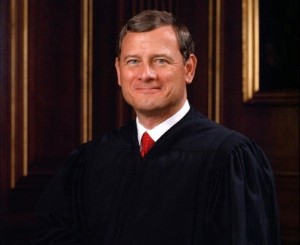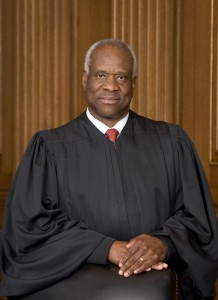 There’s a legal phrase that an appellate court uses to say a lower court failed to follow the law:
There’s a legal phrase that an appellate court uses to say a lower court failed to follow the law:
ABUSE OF DISCRETION
It’s the legal equivalent of “DUH”.
In his majority opinion for the United States Supreme Court that upheld President Trump’s limitations on travel to the United States in the case of Hawaii v. Trump Chief Justice Roberts finally got to the point in the next to last paragraph of 39 pages of prelude:
“…we reverse the grant of the preliminary injunction as an abuse of discretion.”
The phrase “abuse of discretion” basically tells a lower court, that is has failed to exercise sound, reasonable, and legal decision-making skills. In layman’s terms, the lower court did not follow the law, and made a lawless decision.
At issue in the case was President Trump’s third version of the travel ban, issued in September, 2017. The lawsuits primarily claimed, regardless of the content of the actual executive orders that the orders were Muslim bans, and that President Trump was violating the First Amendment’s “Establishment Clause. The arguments were made despite every order explaining that the purpose was to protect Americans from potential terrorists and the problems with properly vetting citizens of specific countries.
Since the first “travel ban” in January, 2017, judges in Hawaii, Washington, Maryland and the 4th and 9th Circuit Court of Appeals, substituted their judgement for the President’s, although they simply did not have that authority. These “lawless” judges determined the orders were not necessary to national security. That is simply not their job.
Presidential Authority to Issue Restrictions on US Entry by Aliens
The authority granted by Congress to the president over immigration relied upon by President Trump in issuing the orders is found in 8 U. S. C. §1182(f) which reads as follows:
(f) Suspension of entry or imposition of restrictions by President
Whenever the President finds that the entry of any aliens or of any class of aliens into the United States would be detrimental to the interests of the United States, he may by proclamation, and for such period as he shall deem necessary, suspend the entry of all aliens or any class of aliens as immigrants or nonimmigrants, or impose on the entry of aliens any restrictions he may deem to be appropriate.
The language is quite clear. The President is delegated the power to suspend or restrict entry into the United States of any or all aliens or class of aliens that he finds are detrimental to the interests of the United States.
 The law does not give a federal judge any power to second guess the president, on what aliens or class of aliens are detrimental to the interests of the United States. On this issue, Justice Clarence Thomas wrote: “Section 1182(f) does not set forth any judicially enforceable limits that constrain the President. Nor could it, since the President has inherent authority to exclude aliens from the country.”
The law does not give a federal judge any power to second guess the president, on what aliens or class of aliens are detrimental to the interests of the United States. On this issue, Justice Clarence Thomas wrote: “Section 1182(f) does not set forth any judicially enforceable limits that constrain the President. Nor could it, since the President has inherent authority to exclude aliens from the country.”
When Judges Become Politicians
While we have a president and not a king, the Constitution wisely limits judicial authority over certain subjects, prime among them are decisions about national security and foreign affairs. These are matters left to the political branches. When judges meddle in them, they become politicians.
The Supreme Court affirmed that in the area of foreign affairs and national security, the elected branches have the final say. As Head of State and Commander in Chief, the president has “inherent” constitutional authority that comes with the office to manage matters at our borders and beyond. The Congress can add to the authority by statute, which it has done in the case of here, in clear and unequivocal language.
It is unknowable if, thanks to the judges who became politicians, persons detrimental to the interests of the United States entered the country due to judicial meddling.
The answer to a different question is extremely knowable: Does the president have the constitutional and statutory authority to restrict alien entry to the United States if he finds such entry detrimental to the interests of the United States?
The Supreme Court answered the question simply: “DUH”.






